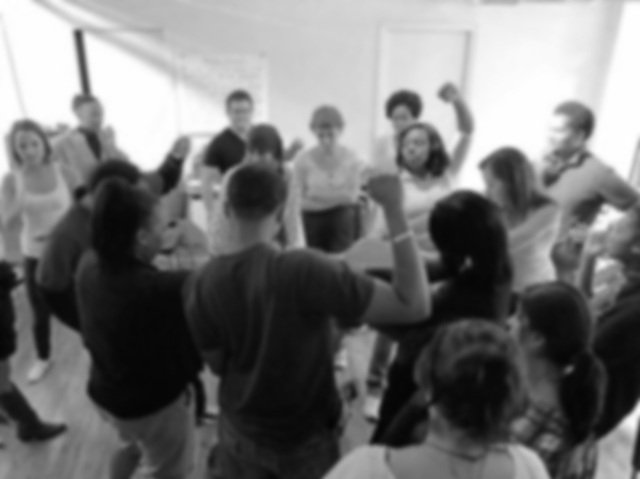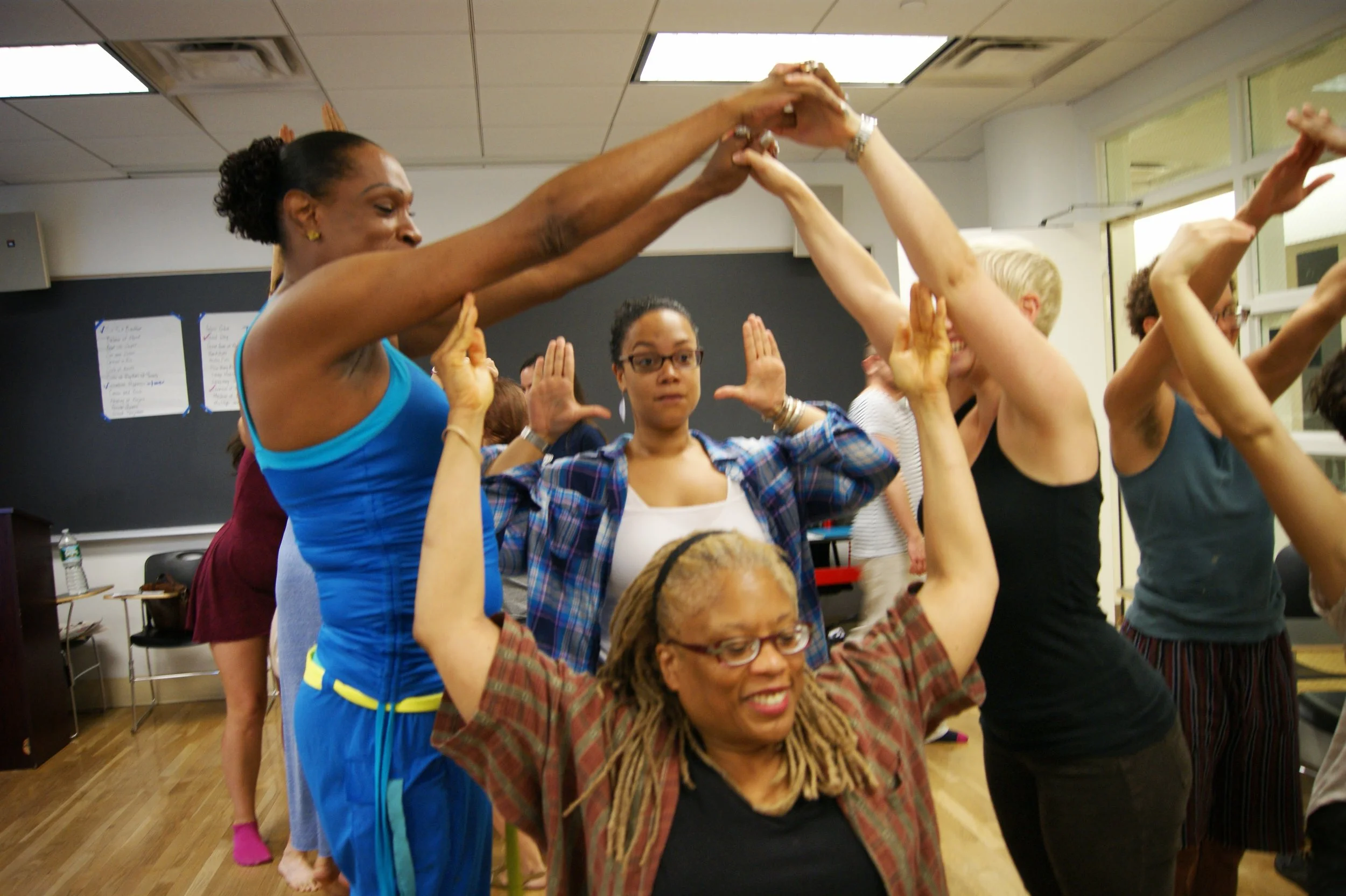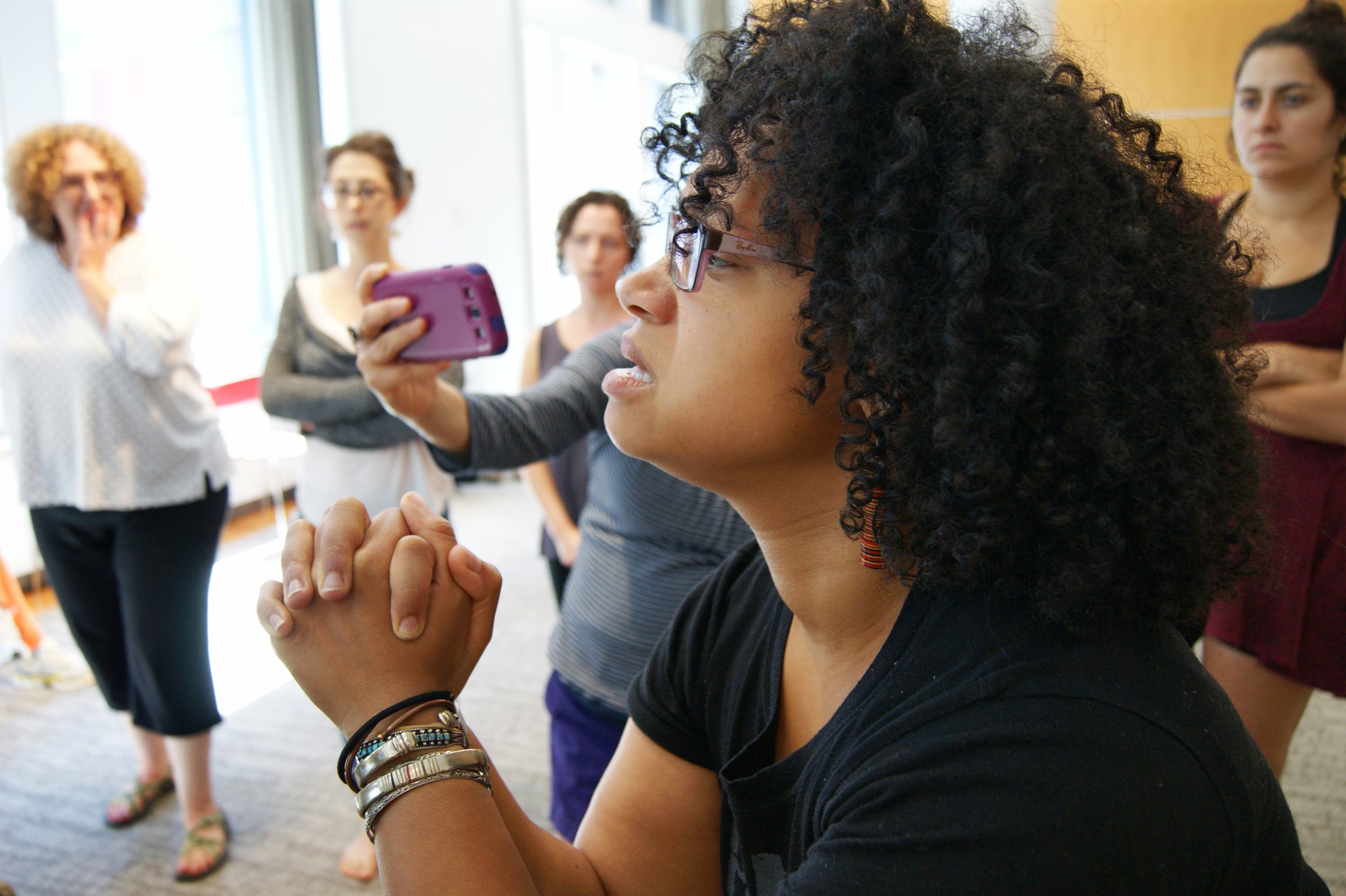
Theatre of the OppresseD
a creative tool for Personal and Systemic Change
Scroll for local events, description and uses of Theatre of the Oppressed, resources and more!
UPCOMING EVENTS
UPCOMING EVENTS
What is Theatre of the Oppressed?
Theatre of the Oppressed (TO) is a liberatory practice used world-wide to create personal, community and systemic change. TO is a practice of creative and deeply embodied techniques that help individuals and communities explore issues of oppression and create tactics to address them. The activities range from seriously silly to deeply contemplative and get groups playing, laughing and dialoguing together.
I have been studying and using Theatre of the Oppressed for over 25 years, beginning in the late 90s. I have worked and trained with with several masterful and accomplished Jokers from around the world, including several times with TO’s founder, Augusto Boal.
Through Theatre of the Oppressed, we can:
Unpack and understand systemic power, privilege and oppression
Build awareness of community issues and organize for action
Respond to community conflict, rifts and ruptures
Open your creative potential through embodied exploration
Develop creative and engaging demonstrations for collective action
Get people talking and strategizing about the issues
Keep scrolling for more!






See for yourself
This video from my time at The Forum Project shows a collection of the work I developed and is a great example of the power and expressions of Theatre of the Oppressed.









More about Theatre of the Oppressed:
A Rehearsal for Revolution
Theatre of the Oppressed is a theoretical framework and set of techniques developed by Brazilian director, artist and activist Augusto Boal.
Recognizing that humans have a unique ability to take action in the world while simultaneously observing themselves in action, Boal believed that the human was a self-contained theatre, actor and spectator in one. Because we can observe ourselves in action, we can amend, adjust and alter our actions to have different impact and to change our world.
Below is a video of Augusto Boal on Democracy Now!, talking about the Theatre of the Oppressed, and showcasing images from TO work around the world.
Game playing is the core of Theatre of the Oppressed. An extensive arsenal of well crafted and expertly facilitated games allows participants to stretch the limits of their imaginations, demechanize habitual behaviors and deconstruct and analyze societal structures of power and oppression. Plus, game playing is fun and builds community!
In Image Theatre participants explore issues of oppression by using nonverbal expression and sculpting their own and other participants’ bodies into static physical images that can depict anything concrete or abstract, such as a feeling, issue, or moment.
Forum Theatre is a performance that functions to transform from spectator (one who watches) to a spect-actor (one who watches and takes action). A short scene by Forum actors presents an issue of oppression and represents the world as it is–the anti-model. Audience members are then encouraged to stop the play and take the stage to address the oppression, attempting to change the outcome through action. The show engages Forum actors and audience members in fun, entertaining and enlightening community dialogue.
Legislative Theatre is an extension of Boal’s Forum Theatre techniques and functions to determine the need for, create, and enact laws. Beyond community building and issue awareness,z Legislative Theatre uses theatrical techniques to create concrete and specific socio-political impact.
Rainbow of Desire uses Image and Forum techniques to investigate internalized oppression. This highly therapeutic series of techniques asks participants to explore how external oppression causes us to oppress ourselves and helps to identify greater social issues and identify opportunities and even action for change.
People have been using Theatre of the Oppressed around the world to build movements, take action, grow solidarity, even to make and change laws!
Books by Augusto Boal
Theatre of the Oppressed
Games for Actors and Non-Actors
Legislative Theatre
Rainbow of Desire
Hamlet and the Baker’s Son
Aesthetics of the Oppressed
Theatre of the Oppressed engages people in discovery, critical reflection and dialogue and the process of liberation! Through Theatre of the Oppressed we can better understand ourselves, our communities and our world. There are several series of techniques, tools and expressions of Theatre of the Oppressed. Below are some of the core expressions of TO that I use regularly:
stay in touch!
I’ll send you an email if I am providing a workshop or event you may be interested in.

